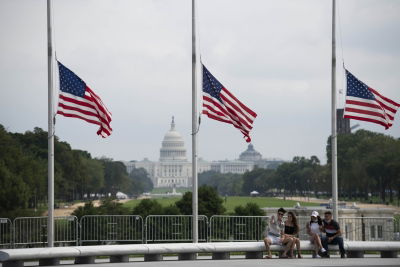America
Present during briefing, US-based Manipur tribal group condemns human rights abuses in India.

May 9
Americans of Kuki descent held a congressional briefing in which they criticised India, about two weeks after New Delhi rejected a US Department of State report accusing human rights abuse in Manipur. Supposedly linked to Khalistani separatists in Canada, the North American Manipur Tribal Association (NAMTA) was in charge of arranging the briefing.
The gathering was attended by David Curry, the USCIRF commissioner, who asserted that there has been an unchecked rise in religious freedom abuses in India. Global Christian Relief's director, Curry, has connected the alleged "atrocities on the Kuki minority Christians to broader issues prevalent nationwide" in his advocacy work.
"Unfortunately, these instances in Manipur mark a broader, widespread pattern of deteriorating religious freedom conditions throughout India," Curry stated during the press conference. India has been designated as a Country of Particular Concern by the USCIRF since 2020 due to the country's systematic, persistent, and severe breaches of religious freedom and human rights. Indian government accused of "failing to meet its constitutional obligations" by Lien Gangte, chairman of NAMTA's Canadian chapter.
Gunshots killed Khalistani terrorist head Hardeep Singh Nijjar in June of 2023, and in August of the same year, Gangte was seen giving a speech in the same gurdwara in Surrey, Canada. Gangte spoke out against "attacks on minorities in India" and asked Canada to provide "all possible help" during his speech.
Indian officials slammed the US State Department report's "deeply biassed" and "a poor understanding of the country" claims of "significant human rights abuses" in Manipur on April 25.
There is a severe lack of knowledge about India and a resulting prejudice in this study. It is of no importance to us, and we urge you to do the same," stated Randhir Jaiswal, a spokesperson for the Ministry of External Affairs.
Deep disagreements over political representation, resource distribution, affirmative action laws, and property ownership sparked the ethnic conflicts between the Kuki-Zo and Meitei tribes. The Meiteis primarily desired membership under the Scheduled Tribes category, namely the 'General' category. According to the state government, the crisis was sparked by their 'war on drugs' campaign.



































